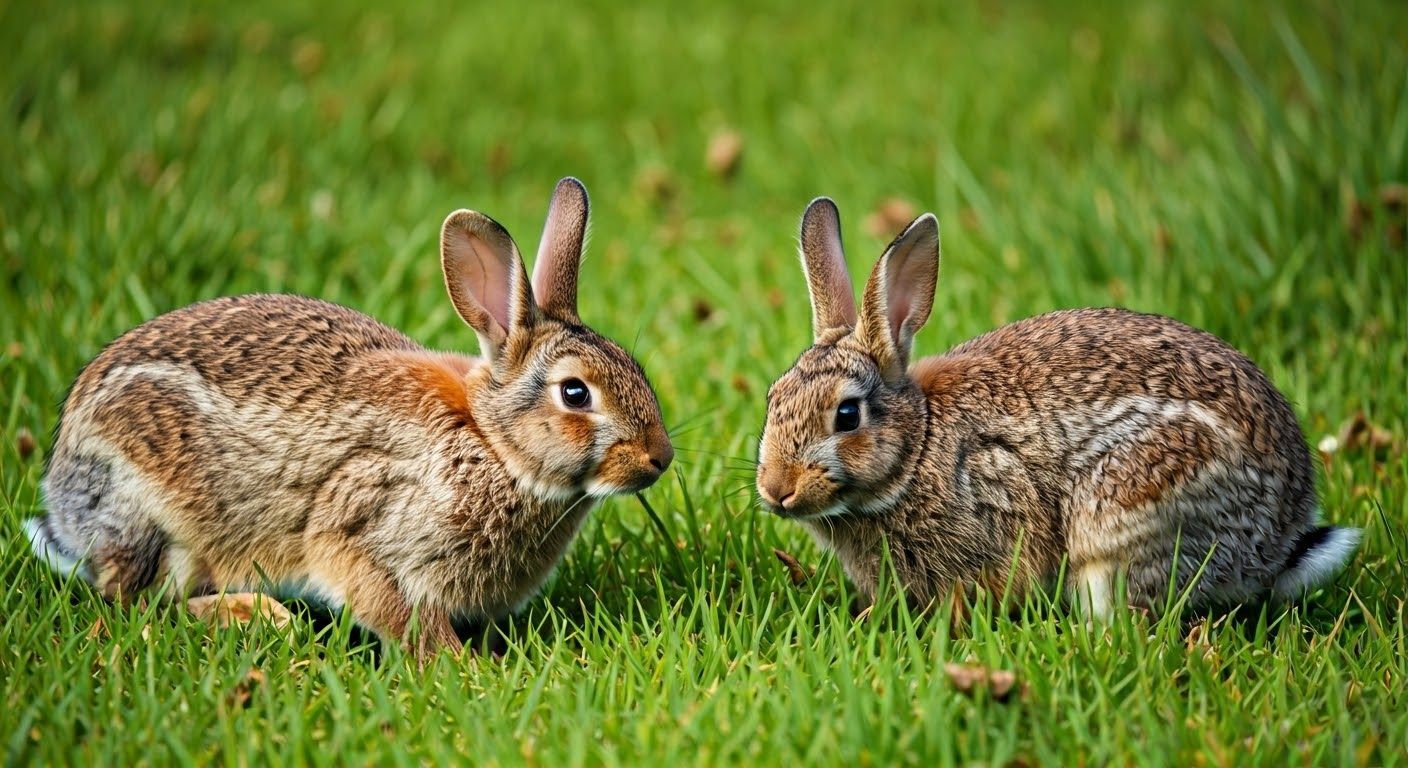In the wild, rabbits mostly eat grass. They might also see a bunny chewing on it. This natural diet provides the nutrients that keep rabbits healthy. For pet rabbits, it is key to follow this diet. Using grass hay as the main food is important. Grass hay is not just food; it is crucial for a rabbit’s diet. It helps keep their digestion and teeth healthy.
Key Highlights
- Grass hay is very important for a rabbit’s diet. It gives them important nutrients and helps their digestion.
- Grass hay is full of fibre. It helps rabbits digest food well and keeps their teeth healthy by wearing them down.
- Just like people prefer certain foods, rabbits also like specific types of grass.
- Grazing is good for both rabbits and the grass. Rabbits get food, and the grass grows back after being eaten.
- It is important to understand how rabbits graze naturally. This way, you can give them the best diet.
The Nutritional Value of Grass in a Rabbit’s Diet

Grass is not only high in fiber, but it also provides rabbits with important nutrients they need to stay healthy. This includes essential herbage. The nutrients in grass consist of vitamins, minerals, and antioxidants that help support their overall well-being. The nutrition in grass can change based on the type of grass, the soil it grows in, and the time of year it is cut.
Young grass has more nutrients and calories than older grass. Some rabbits may also eat bark when food is scarce. You should remember this when giving fresh grass to your rabbit. This is very important if your rabbit has special diet needs or gains weight easily.
Essential Vitamins and Minerals Found in Grass
The nutrients in grass explain why it is good for rabbits. Grass gives a good amount of calcium. Calcium is needed for strong bones and teeth. However, grass has less calcium than foods like alfalfa. This is why grass is a better choice for adult rabbits.
Grass contains vitamin D, which helps with calcium absorption. It also has vitamin E, a natural antioxidant. These vitamins keep rabbits healthy and support their immune systems.
- Always choose fresh grass that is free from pesticides.
- This helps your rabbit get healthy nutrients without harmful chemicals.
The Role of Fiber in Rabbit Digestion
Fibre is really important for rabbits. Their digestive system needs it to work properly. Long strands of fibre, such as those in timothy hay, help move food through their stomachs. This can prevent serious issues, like gastrointestinal stasis.
Fibre helps grind down a rabbit’s teeth. Their teeth keep growing all the time.
If rabbits don’t eat enough fibre, they can have health problems. These problems can include stomach issues and teeth problems. That is why grass and grass hay are very important for a rabbit’s diet.
Understanding Rabbit Grazing Behavior

Watching rabbits in the wild helps us see how they eat. They can be choosy eaters and like to snack on various grasses and plants throughout the day. This behavior keeps them healthy by balancing their nutrients and ensuring their digestion is good. To learn more about topics like this, feel free to subscribe to our email newsletter.
Even pet rabbits may have fewer types of plants but still keep their natural habits. They need a constant supply of fresh hay to eat throughout the day. This helps them stick to their natural feeding patterns.
How Rabbits Choose Which Grass to Eat
Rabbits, just like people, have their favorite kinds of grass. They might like some grasses more than others. Fresh grass is always a treat for them. However, things like good hay, the taste, texture, and smell can change what a rabbit picks. Some rabbits enjoy sweeter and softer grasses. Others might prefer the rough feel of older grasses.
You can help your rabbit by offering different types of grass. Try adding new grasses one at a time. Then, see which ones your rabbit likes the best.
Having different foods is like having different friends. It makes mealtime more exciting! But remember, some types of grass can be harmful for rabbits. It’s a good choice to check if any new type of grass is safe for your pet before you give it to them.
The Impact of Grazing on Grass Regrowth
Rabbits and grass have a special relationship. The grass is a food source for the rabbits. When rabbits eat the grass, it helps the grass grow back. You can think of a rabbit as a natural lawn mower. It keeps the grass short and helps new grass grow, just like a hutch does.
When rabbits eat, they focus on the top part of the grass. This cutting can help the grass grow back stronger and fuller.
|
Grazing Behavior |
Impact on Grass |
|
Light Grazing |
Promotes lateral growth, resulting in a thicker lawn. |
|
Moderate Grazing |
Encourages new shoots to develop, leading to a denser lawn. |
|
Heavy Grazing |
Can damage grass, reducing its ability to regrow effectively. |
It is important to avoid overgrazing. If the grass gets grazed too much, it can become weak. A weak grass can get sick easily and its health will not be good.
Conclusion
Grass is important for rabbits’ health. It gives them the nutrients they need and helps them eat in a natural way. Grass has lots of vitamins, minerals, and fiber. This helps rabbits digest food and keeps their teeth strong. How rabbits pick grass to eat also shows how their eating habits help grass grow back. This shows how closely rabbits and their environment are connected. Adding grass to a rabbit’s diet can help give them good nutrition. If you want tips on improving your rabbit’s diet with grass, feel free to ask our experts for personal advice and suggestions.
Frequently Asked Questions
What types of grass are safe for rabbits?
Safe grasses include timothy, meadow hay, and rye. You can use clover as a treat sometimes, but only a little as a substitute for other grasses. Always introduce new grasses slowly. If you are not sure, ask your vet for a complete list of safe grasses that work in your area.
How does grass consumption benefit rabbit health?
The high fiber in grass helps to keep a rabbit’s digestive system healthy. Chewing grass also helps to wear down their teeth because these teeth keep growing. Fresh grass provides important vitamins and minerals as well.
Can rabbits survive on grass alone?
Wild rabbits eat many types of plants, herbs, and seed heads. Grass is a big part of their food, but it is not enough for all their needs. Grass is like the base of what they eat, but they still need a mix of foods for a healthy diet.
How much grass should a rabbit eat daily?
The main guideline is to provide your rabbit with daily grass hay that matches its body size. You can give this in bales or loose hay. It’s smart to speak with a veterinarian or rabbit nutritionist. They can assist you in figuring out the right amount for your rabbit’s specific needs.
Does eating grass help with a rabbit’s dental health?
The rough feel of grass, especially tougher types like timothy hay, helps to wear down a rabbit’s teeth. A rabbit’s teeth grow all their life. Chewing grass is essential for their dental health. The reason grass is so important is that it gives needed abrasion to their teeth.

Hi, I’m Sondip,
I’m a writer who loves to help people solve their problems. I write about small animals like mice and other small animals and even pests.

